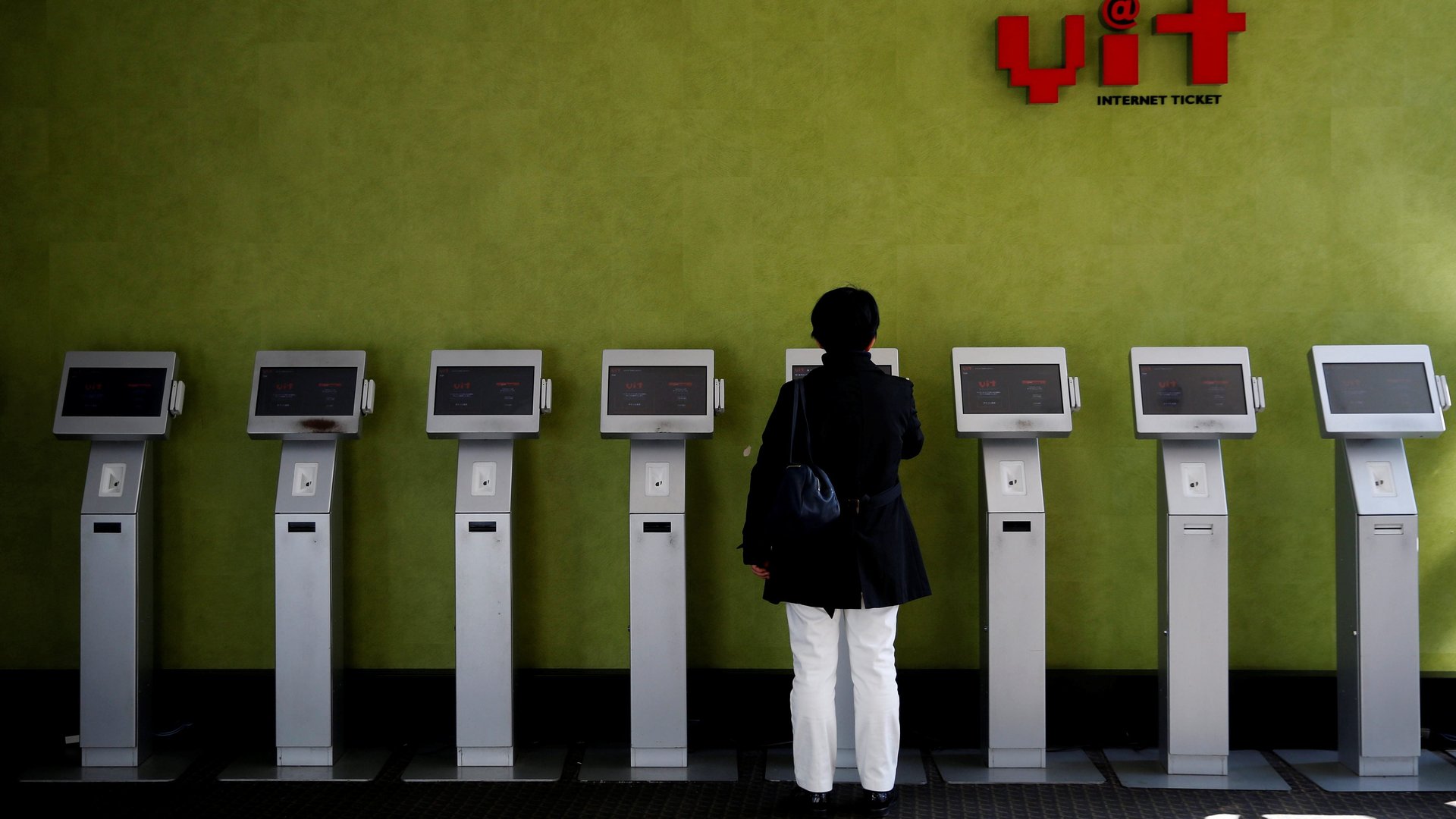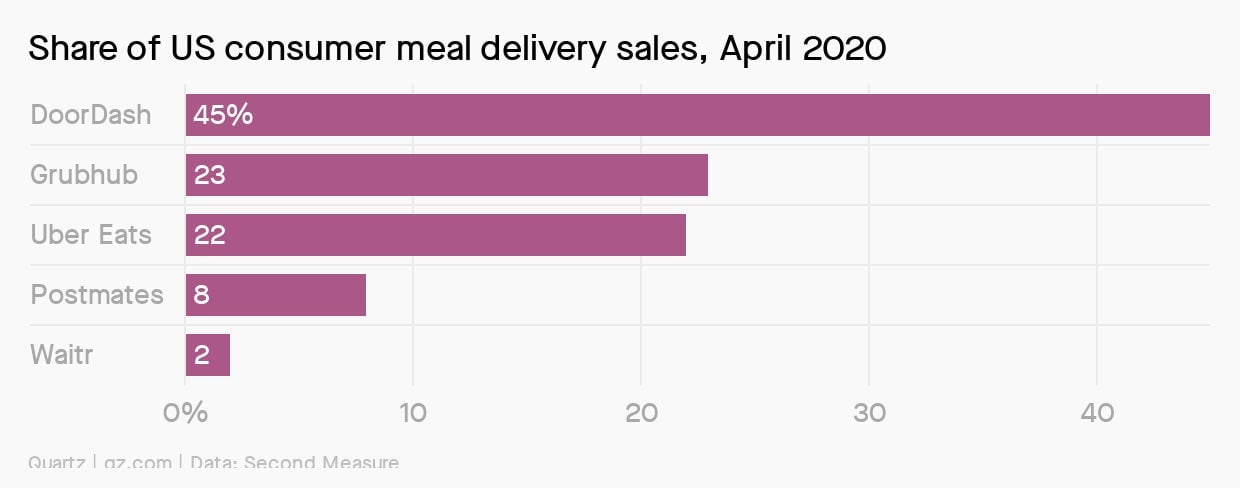Fed spending spree, North Korea’s warning, luxury doomsday bunker
Good morning, Quartz readers!

Good morning, Quartz readers!
Here’s what you need to know
Beijing imposed more coronavirus restrictions. As the number of cases in the capital city’s current outbreak has risen above 100, Chinese authorities have banned outbound travel of people deemed high-risk and has suspended some public transport. Meanwhile, New Zealand broke its three-week streak of zero cases with two new infections, both of whom had visited the UK this month.
The US Fed starts to buy corporate bonds. It will take in up to $250 billion in highly-rated corporate bonds, complementing the central bank’s purchases in exchange-traded funds of corporate debt starting last month.
US president Donald Trump signs an executive order on police reform. The package, which doesn’t address the underlying issues of racism, will create a database to track officers with multiple instances of misconduct, and also encourage police departments to engage mental health professionals more in policing.
North Korea threatened to send troops into the de-militarized border zone. The warning came amid rising tensions with the South over propaganda leaflets that defectors have been sending across the border to the north.
The Greek prime minister visits Israel. Kyriakos Mitsotakis and six of his ministers will hold talks with Jerusalem about energy, the Israel-Palestine peace plan unveiled by the US in January, as well as Israel’s plans to annex the West Bank.
The British government took a swipe at HSBC. Foreign secretary Dominic Raab said his government “will not sacrifice the people of Hong Kong over the altar of banker bonuses,” a rebuke of the firm’s decision to back China’s national security law for the territory.
Slowing the red carpet’s roll

The Academy of Motion Picture Arts and Sciences—the folks who bring A-list celebrities together every year to show off the latest in formalwear and make tearful speeches—announced that they will be postponing the 2021 Oscars by two months, along with the eligibility deadline for feature films.
Hollywood will be eyeing the rest of the world for clues as to how to get back on track. Though Japan has been a (relative) success story in rebounding from the Covid-19 pandemic, its box office has been extremely slow to follow suit, providing a glimpse of what bigger film markets like the US and India can expect as they reopen theaters with social-distancing policies in place.
In countries where the situation is much worse, moviegoers will have to be re-trained to return to the movies—a process that could be measured in years, not months.
Charting the food delivery sector
On June 10, Grubhub cut Uber out of a potential deal and agreed to merge with Just Eat Takeaway, a European food delivery service, in an all-stock purchase valued at $7.3 billion. Despite enormous industry growth even before the onset of the pandemic and its resulting lockdowns, the meal delivery business remains unstable. In the first quarter of 2020, Uber Eats recorded a $313 million loss in adjusted EBITDA.

It’s not exactly a heartening sign if your food delivery service is struggling during a time of unprecedented demand. When restaurants come back, the demand for Uber Eats and its competitors is likely to decline. With the food delivery industry increasingly saturated with unprofitable players, investors are hungry for more consolidation.
For Members: So you want to test a vaccine…
No problem! There’s just the small matter of redirecting all of your funds and energy. Here’s what you’d need to do to produce a mass vaccine trial at warp speed:
- Drop all other work
- Rustle up some in-house catering
- Pivot your research and restructure your entire organization
- Launch a massive phase one trial of human participants (which typically involves a few dozen participants, but in this case should include up to 1,050)
- Almost immediately start a combined phase two and three trial with more than 6,000 participants
- Support coronavirus trial sites in North America, Africa, and Asia, as well as in the UK
Your heroic efforts will make a great movie one day. Read more about how organizations like the Jenner Institute have taken on the Herculean task of fighting the novel coronavirus in our field guide on science’s great pandemic pivot.
✦ To gain access to all the stories, presentations, field guides, workshops, and more available exclusively to Quartz members, try a seven-day free trial. ✦
You asked about vaccine access
How will countries pay for vaccines? Will richer countries be prioritized?
Let’s talk about an advance market commitment, or AMC—essentially a fundraising pledge that gives contributors a share of the finished product. Katherine Ellen Foley wrote about Gavi, the Vaccine Alliance’s Covid-19 AMC, which has gotten pledges from the nation of Bhutan, the nonprofit group Gamers Without Borders, and TikTok. Gavi’s no stranger to vaccine AMCs, but this one’s drawn interest from a much more eclectic bunch.
“Why is something like an AMC necessary? It has to do with the way drug companies price vaccines,” Foley writes. “Drug prices are usually set to allow pharma companies to turn a profit after investing in research and development. But vaccines are different: In general, drug companies price vaccines based on what governments will pay for them. Predictably, this translates to wealthier countries paying more for vaccines, and poorer countries paying less. And unless something like an AMC puts an order in ahead of time, that means lower-paying countries can end up at the back of the queue.”
Production bottlenecks and direct contracts between governments and private vaccine producers all tend to jack up prices. Without AMCs and other mechanisms in place, poorer countries may be left without vaccines for their residents even after they’re on the market for the rest of the world.
Surprising discoveries
It’s a great time to buy Isaac Newton’s recipe for toad vomit lozenges… An auction house is selling two handwritten pages containing the formula, which was meant to treat the plague.
…or a luxury subterranean doomsday bunker. Built 26 feet (8 meters) underground, the bunker and the house on top could be yours for $18 million.
Diego, the highly reproductive tortoise, has retired. The 100-year-old giant Galapagos tortoise saved his species from extinction with his impressive libido.
Six ex-eBay employees were charged in a bizarre stalking campaign. Among other forms of harassment, they allegedly mailed live cockroaches to a journalist writing negatively about eBay.
Hummingbirds can see extra colors. They have more color-sensing cones than humans, meaning they can see colors outside of the rainbow.
Our best wishes for a productive day. Please send any news, comments, queasy amphibians, and amorous reptiles to [email protected]. Get the most out of Quartz by downloading our app on iOS or Android and becoming a member. Today’s Daily Brief was brought to you by Mary Hui, Tripti Lahiri, Katherine Ellen Foley, Adam Epstein, Michelle Cheng, Jackie Bischof, Susan Howson, and Nicolás Rivero.